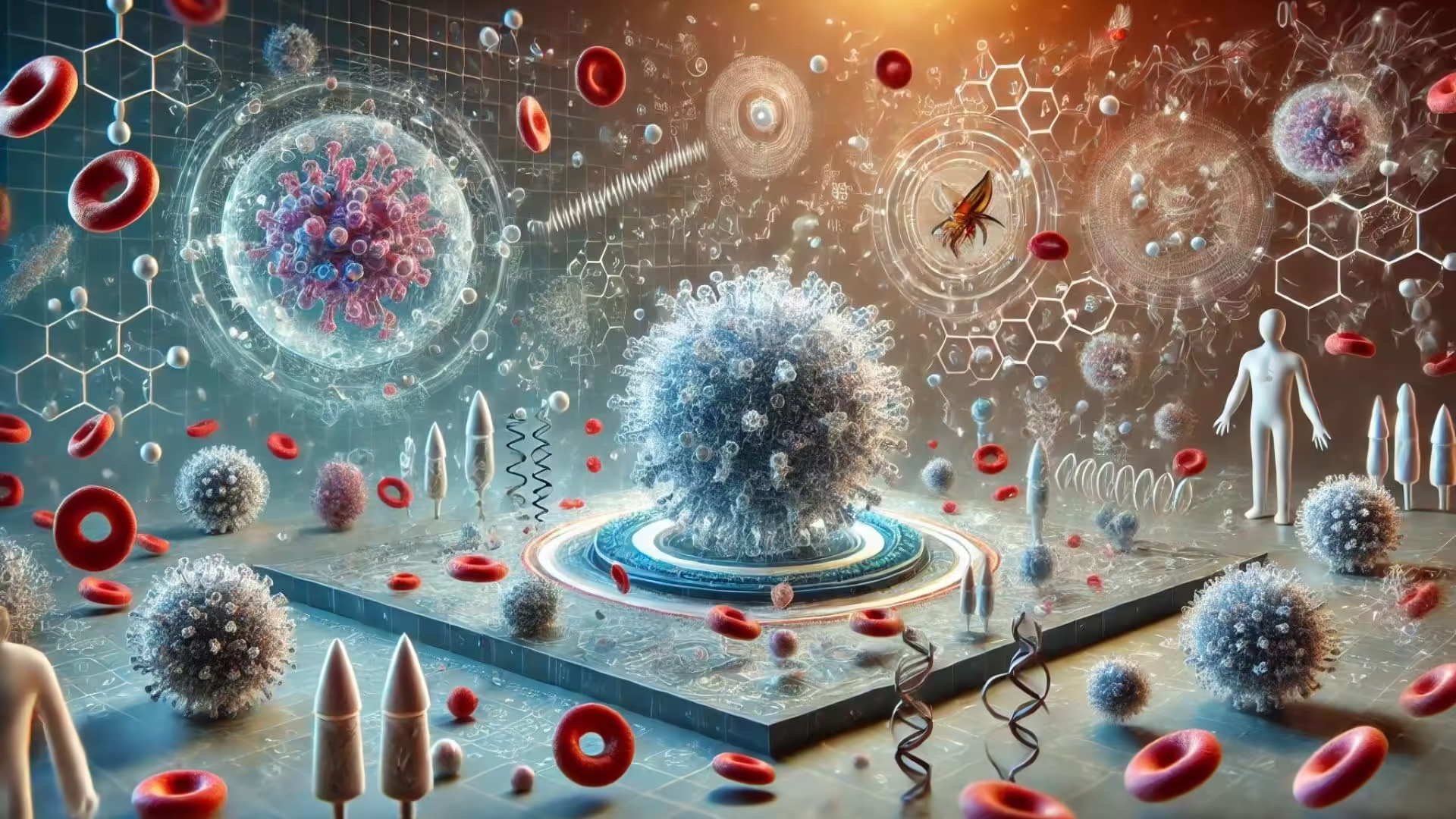Have you ever wondered how your body knows when to launch a defense against invading germs? Our immune system is a complex and sophisticated network, tirelessly working to protect us from harmful pathogens like bacteria, viruses, and fungi. Understanding how the immune system identifies these threats can provide insights into maintaining our health and combating diseases. Let’s explore the fascinating world of immune response and how it impacts our daily lives.
The Immune System: Our Body’s Defense Mechanism
The immune system is our body’s defense mechanism, constantly patrolling to detect and eliminate foreign invaders. It comprises various cells, tissues, and organs that work together to recognize and respond to pathogens. To understand how the immune system identifies these threats, we need to explore the two main components: the innate immune system and the adaptive immune system.
The Innate Immune System: The First Line of Defense
The innate immune system is our body’s first line of defense against pathogens. It acts quickly and non-specifically, targeting a broad range of invaders. Key components of the innate immune system include physical barriers like skin and mucous membranes, as well as immune cells such as macrophages, neutrophils, and natural killer cells.
When a pathogen breaches the body’s external defenses, innate immune cells recognize it through pattern recognition receptors (PRRs). These receptors identify pathogen-associated molecular patterns (PAMPs), which are unique molecules found on the surface of pathogens. For example, macrophages can detect bacterial cell walls through specific receptors, triggering an immune response to engulf and destroy the invaders.
Real-Life Example: Imagine you get a small cut on your finger while gardening. Your innate immune system immediately springs into action, with immune cells rushing to the site to prevent infection from soil bacteria. This swift response helps protect your body from harm.
The Adaptive Immune System: A Tailored Response
While the innate immune system provides a rapid response, the adaptive immune system offers a more specialized and targeted defense. It involves lymphocytes, such as B cells and T cells, which can recognize specific antigens—unique molecules on the surface of pathogens.
When a pathogen is detected, antigen-presenting cells (APCs) capture and process its antigens, presenting them to T cells. This interaction activates T cells, which then coordinate a precise immune response. B cells, on the other hand, produce antibodies that bind to specific antigens, neutralizing pathogens and marking them for destruction.
Real-Life Example: Vaccinations are a prime example of the adaptive immune system at work. When you receive a vaccine, your body is exposed to harmless fragments of a pathogen, allowing your immune system to recognize and remember it. If you encounter the actual pathogen in the future, your adaptive immune system can quickly mount a defense.
The Importance of Immune System Recognition
Understanding how our immune system identifies pathogens is crucial for several reasons:
- Disease Prevention: A properly functioning immune system can prevent infections and diseases by recognizing and eliminating pathogens before they cause harm.
- Autoimmune Disorders: In some cases, the immune system mistakenly targets the body’s own cells, leading to autoimmune disorders. Understanding immune recognition can help develop treatments for these conditions.
- Vaccine Development: Insights into how the immune system identifies pathogens aid in designing effective vaccines that train the body to recognize and fight infections.
Keeping Your Immune System Strong
A well-functioning immune system is essential for maintaining health and preventing illness. Here are some tips to support your immune system:
- Maintain a Healthy Diet: Eating a balanced diet rich in fruits, vegetables, and whole grains provides essential nutrients that support immune function.
- Exercise Regularly: Physical activity boosts circulation and promotes the efficient functioning of the immune system.
- Get Enough Sleep: Adequate sleep is vital for immune health, as it allows the body to repair and regenerate.
- Manage Stress: Chronic stress can weaken the immune system, so finding healthy ways to manage stress is important.
- Stay Hydrated: Drinking plenty of water helps flush out toxins and supports overall health.
Take Action: Empower Your Immune System
Now that you understand how your immune system identifies pathogens, take action to support your body’s natural defense mechanisms. By maintaining a healthy lifestyle and staying informed about immunology, you can empower your immune system to protect you from infections and diseases.
Consider getting vaccinated to bolster your immune defense and consult with healthcare professionals for personalized advice on maintaining immune health. Embrace the knowledge of how your body fights off pathogens and apply it to your everyday life to enhance your well-being.
Expand Your Vocabulary
This section explores key words and expressions used in the article about how our immune system identifies pathogens. Understanding these terms will enhance your comprehension of the article and help you incorporate them into your everyday English.
- Pathogen
Meaning: An organism that causes disease, such as bacteria, viruses, or fungi.
Context: The immune system identifies and targets pathogens to protect the body.
Everyday Use: You might refer to pathogens when discussing health risks, such as “Handwashing helps prevent the spread of pathogens.” - Immune System
Meaning: The complex network of cells, tissues, and organs that defends the body against infections.
Context: The immune system works to identify and eliminate foreign invaders like pathogens.
Everyday Use: You might strengthen your immune system through healthy habits, like “Eating a balanced diet supports a healthy immune system.” - Innate Immune System
Meaning: The part of the immune system that provides a rapid, non-specific response to pathogens.
Context: The innate immune system acts as the first line of defense against infections.
Everyday Use: You might compare the innate immune system to a security guard, saying, “The innate immune system quickly responds to potential threats.” - Adaptive Immune System
Meaning: The part of the immune system that provides a specific, tailored response to pathogens, involving lymphocytes like B cells and T cells.
Context: The adaptive immune system creates a targeted response against specific antigens.
Everyday Use: You might describe the adaptive immune system as a detective, like “The adaptive immune system identifies and targets specific invaders.” - Antigen
Meaning: A molecule or substance that triggers an immune response, often found on the surface of pathogens.
Context: Antigens are recognized by the immune system as foreign, prompting a response.
Everyday Use: You might discuss antigens when explaining how vaccines work, such as “Vaccines expose the body to antigens, training the immune system to recognize them.” - Antibodies
Meaning: Proteins produced by B cells in the immune system that bind to specific antigens, neutralizing pathogens.
Context: Antibodies target and neutralize pathogens, preventing them from causing harm.
Everyday Use: You might refer to antibodies when discussing immune responses, like “After a vaccination, your body produces antibodies to fight off the virus.” - Lymphocytes
Meaning: A type of white blood cell, including B cells and T cells, involved in the adaptive immune response.
Context: Lymphocytes play a crucial role in identifying and attacking specific pathogens.
Everyday Use: You might discuss lymphocytes when talking about the immune system’s response, such as “Lymphocytes are essential for targeting specific invaders.” - Vaccination
Meaning: The administration of a vaccine to stimulate the immune system and provide protection against a specific disease.
Context: Vaccination helps train the adaptive immune system to recognize and combat pathogens.
Everyday Use: You might consider vaccination a preventive measure, like “Vaccination is a key step in preventing the spread of infectious diseases.” - Pattern Recognition Receptors (PRRs)
Meaning: Molecules on immune cells that recognize common features of pathogens, initiating an immune response.
Context: PRRs help the innate immune system detect pathogens by recognizing pathogen-associated molecular patterns (PAMPs).
Everyday Use: You might compare PRRs to sensors, saying, “PRRs act like sensors, alerting the immune system to potential threats.” - Autoimmune Disorders
Meaning: Conditions in which the immune system mistakenly attacks the body’s own cells.
Context: Understanding immune recognition helps develop treatments for autoimmune disorders.
Everyday Use: You might discuss autoimmune disorders when talking about immune system regulation, such as “Autoimmune disorders occur when the body’s defense system targets its own tissues.”
Let’s Talk
After exploring how the immune system identifies pathogens, consider the following thought-provoking questions. Reflect on these questions and feel free to share your thoughts in the comments or discuss them with friends and family to deepen your understanding of the topic.
- How does the immune system distinguish between harmful pathogens and harmless substances in the body?
- What role do lifestyle choices, such as diet and exercise, play in maintaining a healthy immune system?
- How do vaccines utilize the principles of immune system recognition to protect against diseases?
- What are some common misconceptions about the immune system and its functions?
- How might advancements in immunology contribute to the treatment of autoimmune disorders?
- What challenges does the immune system face when encountering novel pathogens, such as emerging viruses?
- How can individuals support their immune health during times of stress or illness?
- What impact do environmental factors, such as pollution and climate change, have on immune system function?
- How can understanding immune system processes improve public health initiatives and disease prevention strategies?
- What steps can you take to educate others about the importance of immune system health and disease prevention?
These questions encourage reflection on the complexities of the immune system and its vital role in protecting our health, fostering a deeper understanding of how we can support and enhance our body’s natural defenses.










0 Comments